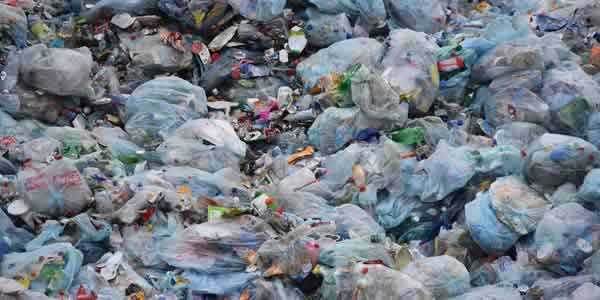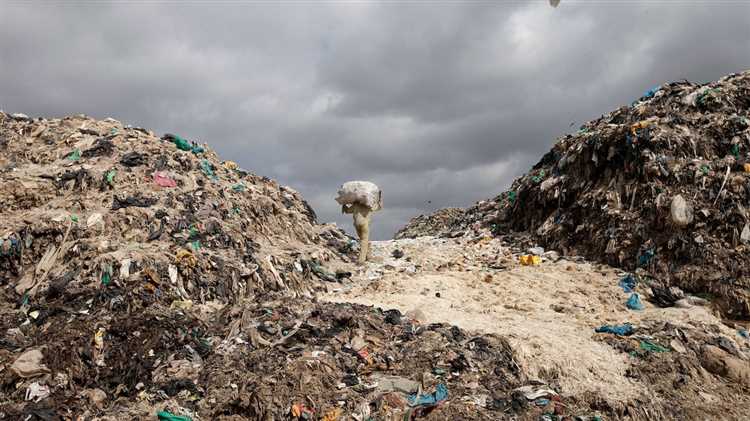
Plastic bags have become an integral part of our daily lives. From carrying groceries to packing lunches, they are a convenient and widely used product. However, the environmental impact of plastic bags cannot be ignored. They are a major source of pollution and contribute to the global plastic waste crisis. As a result, there has been a growing movement to ban plastic bags in many countries and cities. But what would happen if we actually implemented a ban on plastic bags?
Firstly, it is important to understand the impact a ban would have on the economy. The plastic bag industry provides employment to thousands of people and contributes to the economy. Banning plastic bags would lead to job losses and financial hardships for those involved in the production and distribution of these bags. However, this negative effect could potentially be mitigated by the development of alternative, eco-friendly bag options.
Secondly, a ban on plastic bags would undoubtedly have a positive impact on the environment. Plastic bags are not biodegradable and can take hundreds of years to break down. They often end up in landfills or as litter in waterways, causing harm to wildlife and ecosystems. By eliminating plastic bags, we would significantly reduce the amount of plastic waste that ends up polluting our planet. This would be a major step towards tackling the global plastic pollution crisis and preserving our environment for future generations.
Lastly, a ban on plastic bags would encourage consumers and businesses to adopt more sustainable practices. With the absence of plastic bags, people would have to find alternative ways to carry their belongings, such as reusable bags or baskets. This change in behavior could lead to a larger shift towards a more eco-friendly lifestyle, with people becoming more aware of the impact their choices have on the environment. Additionally, businesses would be encouraged to find innovative and sustainable packaging solutions, reducing their reliance on plastic.
In conclusion, while implementing a ban on plastic bags may have some negative economic consequences, the environmental benefits far outweigh them. Such a ban would help combat plastic pollution, protect wildlife and ecosystems, and lead to a more sustainable future. It is important for individuals, businesses, and governments to work together to find viable alternatives and strategies for a plastic-free world.
- The Environmental Impacts of Banning Plastic Bags
- Reduction in Plastic Waste
- Environmental Impact
- Economic Benefits
- Positive Impact on Wildlife
- Cleaner Oceans and Rivers
- Decrease in Greenhouse Gas Emissions
- Reduced Production of Plastic
- Energy-Saving in Production and Transportation
- Promotion of Sustainable Alternatives
- Economic Implications and Job Opportunities
- Q&A
- What are the environmental impacts of plastic bags?
- Why are plastic bags so bad for the environment?
- What would happen if we banned plastic bags?
- What are the alternatives to plastic bags?
- How would a plastic bag ban affect businesses?
The Environmental Impacts of Banning Plastic Bags
Plastic bags are known for their negative environmental impacts, and it is commonly argued that banning them is a necessary step towards a more sustainable future. The decision to ban plastic bags can have several positive effects on the environment.
Firstly, banning plastic bags reduces litter. Plastic bags are lightweight and easily blown away by the wind, leading to litter accumulation in streets, parks, and water bodies. By banning these bags, we can significantly reduce the amount of litter in our environment and keep our surroundings clean.
Secondly, the ban on plastic bags helps in the conservation of natural resources. Plastic bags are primarily made from non-renewable sources like crude oil. The production of these bags requires a significant amount of energy and natural resources. By banning plastic bags, we can conserve these resources and reduce our reliance on fossil fuels.
Additionally, the ban promotes the use of alternative eco-friendly options. When plastic bags are no longer available, consumers are encouraged to use reusable bags made from materials like cotton, jute, or canvas. These bags can be used multiple times, reducing the demand for single-use plastic and ultimately leading to less waste generation.
The ban on plastic bags can also have a positive impact on marine life. Plastic bags often end up in rivers, lakes, and oceans, posing a significant threat to marine ecosystems. Marine animals can mistake them for food and become entangled in them, leading to injury or death. By banning plastic bags, we can protect marine life and preserve aquatic habitats.
Overall, the environmental impacts of banning plastic bags are highly beneficial. It helps reduce litter, conserves natural resources, promotes eco-friendly alternatives, and protects marine life. By implementing such a ban, we take a crucial step towards a cleaner and more sustainable future.
Reduction in Plastic Waste

One of the main benefits of banning plastic bags is the significant reduction in plastic waste. Plastic bags are notorious for their long lifespan, taking anywhere from 20 to 1000 years to decompose in landfills. This means that even a single plastic bag used for a few minutes can linger in the environment for centuries.
By banning plastic bags, the amount of plastic waste entering landfills and polluting oceans would be reduced. This is because people would be forced to find alternative solutions and opt for more sustainable options such as reusable cloth bags or biodegradable alternatives.
Environmental Impact
The reduction in plastic waste would have a positive impact on the environment. Plastic pollution is a major threat to wildlife, with millions of marine animals and birds dying each year as a result of ingesting or becoming entangled in plastic debris. By banning plastic bags, we would help protect these vulnerable creatures and preserve their habitats.
Economic Benefits

In addition to the environmental benefits, banning plastic bags can also have economic advantages. The production and disposal of plastic bags require significant resources and energy. By cutting down on plastic bag production, we can reduce the demand for fossil fuels and lower greenhouse gas emissions. This, in turn, can provide new opportunities for businesses and job creation in the production of alternative eco-friendly materials.
Positive Impact on Wildlife
Banning plastic bags would have a positive impact on wildlife. Many animals, including marine life, mistakenly consume plastic bags, mistaking them for food. These animals often suffer greatly as a result, with plastic bags causing blockages or digestive issues. In some cases, animals may even die from ingesting too much plastic. By eliminating plastic bags, we can significantly reduce the amount of plastic waste in our environment and protect wildlife from these harmful effects.
Additionally, by banning plastic bags, we can also help reduce the amount of plastic pollution in our oceans and waterways. Plastic bags often end up in bodies of water, where they break down into microplastics that are consumed by fish and other marine creatures. These microplastics can then enter the food chain, potentially harming larger marine animals and even humans who consume seafood. By eliminating plastic bags, we can help mitigate the impact of plastic pollution on wildlife and the ecosystem as a whole.
Furthermore, banning plastic bags would encourage the use of more sustainable alternatives, such as reusable bags made from eco-friendly materials. These bags are typically sturdier and can be used multiple times, reducing the need for single-use plastic bags. By using reusable bags, we can further reduce our impact on wildlife and the environment, as they are less likely to end up as litter or in bodies of water.
- Overall, by banning plastic bags, we can protect wildlife from the harmful effects of plastic consumption.
- We can also mitigate the impact of plastic pollution on our oceans and waterways.
- Encouraging the use of reusable bags can further reduce our environmental impact.
Cleaner Oceans and Rivers
Plastic bags are a major contributor to pollution in our oceans and rivers. When plastic bags are not properly disposed of, they often end up in waterways and can take hundreds of years to decompose. As a result, they can cause significant harm to marine life, as animals can mistake them for food or become entangled in them.
Banning plastic bags would greatly reduce the amount of plastic waste that finds its way into our water systems. Without plastic bags cluttering our oceans and rivers, marine ecosystems would be cleaner and healthier.
Furthermore, a reduction in plastic bag usage would also lead to a decrease in the amount of resources needed to clean up our waterways. Currently, governments and organizations spend significant amounts of money and resources to clean up plastic pollution. By banning plastic bags, these resources could be used more effectively for other environmental initiatives.
It is important to note that banning plastic bags would not be a cure-all solution for plastic pollution. Other single-use plastic items, such as straws and water bottles, also contribute to the problem. However, banning plastic bags would be a significant step in the right direction and could serve as a catalyst for further action to reduce plastic waste.
Decrease in Greenhouse Gas Emissions
The negative impact of plastic bags on the environment extends beyond their disposal in landfills or as litter. The production and distribution of plastic bags also contribute to greenhouse gas emissions, which exacerbate climate change. However, by implementing a ban on plastic bags, significant reductions in greenhouse gas emissions can be achieved.
Reduced Production of Plastic
Plastic bags are made from non-renewable fossil fuels, such as oil and gas. The extraction, refining, and manufacturing processes involved in producing these materials release substantial amounts of carbon dioxide and other greenhouse gases into the atmosphere. By banning plastic bags, the demand for these materials would decrease, leading to a reduction in the production and use of plastic overall.
Energy-Saving in Production and Transportation
The production of plastic bags requires significant energy inputs, both in terms of manufacturing the bags themselves and transporting them to various retailers. This energy consumption leads to the release of additional greenhouse gases, contributing to climate change. By eliminating plastic bags, the energy requirements for their production and transportation would be eliminated, resulting in a decrease in associated greenhouse gas emissions.
| Benefit | Description |
|---|---|
| Reduced Carbon Footprint | By reducing the production and use of plastic bags, the release of greenhouse gases, such as carbon dioxide, would be significantly reduced. |
| Lower Energy Consumption | The energy-saving potential from not manufacturing and transporting plastic bags would result in reduced greenhouse gas emissions. |
| Improved Air Quality | Since plastic bag production involves releasing harmful pollutants into the air, a ban would result in cleaner and healthier air. |
In conclusion, implementing a ban on plastic bags would not only benefit the environment by reducing litter and waste but also contribute to the decrease in greenhouse gas emissions. By transitioning to more sustainable alternatives, we can take a significant step towards mitigating climate change and creating a cleaner and healthier planet.
Promotion of Sustainable Alternatives
One of the key strategies in reducing plastic bag usage is promoting sustainable alternatives. Encouraging consumers to switch to reusable bags is vital in reducing the environmental impact of single-use plastic bags.
Government and environmental organizations can play a crucial role in this promotion. They can launch awareness campaigns to educate the public about the benefits of using reusable bags. These campaigns can highlight the environmental damage caused by plastic bags and emphasize the positive impact of reusable alternatives.
Incentives can be provided to encourage the adoption of reusable bags. For example, discounts can be offered to customers who bring their own bags while shopping. This can motivate individuals to invest in reusable bags, ultimately decreasing their reliance on plastic bags.
Retailers can also play an active role in promoting sustainable alternatives. They can prominently display reusable bags at checkout counters, reminding customers of the option to use more eco-friendly alternatives. Moreover, retailers can collaborate with manufacturers to develop stylish and durable reusable bags, making them more appealing to consumers.
Collaboration between various stakeholders is essential in fostering the adoption of sustainable alternatives. By working together, governments, organizations, and retailers can establish programs that encourage the use of reusable bags. This collaborative effort can lead to a widespread reduction in the consumption of plastic bags.
Furthermore, investing in research and development can pave the way for innovative alternatives to plastic bags. For example, biodegradable bags made from organic materials or reusable bags made from recycled plastics can be developed. By supporting research and innovation, a wide range of sustainable alternatives can be created, ensuring a more eco-friendly future.
- Promoting reusable bags through awareness campaigns
- Offering incentives, such as discounts, for using reusable bags
- Collaborating with retailers to display and develop attractive reusable bags
- Establishing programs through collaboration between stakeholders
- Investing in research and development for innovative alternatives
By taking proactive measures to promote sustainable alternatives, we can tackle the plastic bag issue and move towards a more sustainable future.
Economic Implications and Job Opportunities
The ban on plastic bags would have several economic implications. However, these implications would not all be negative. On the one hand, the production and sale of plastic bags would decline, affecting the profits of companies that rely heavily on plastic bag production. On the other hand, the ban would create new job opportunities in alternative industries.
For example, with the decrease in plastic bag production, there would be a greater demand for reusable bags made from materials such as cloth or recycled materials. This would lead to an increase in production and sales of these environmentally friendly bags, which would, in turn, create jobs in the manufacturing and retail sectors.
Furthermore, the ban could also lead to the emergence of new innovative business models. Companies could develop technologies to recycle and repurpose plastic bags, creating a whole new industry focused on recycling plastic waste. This industry would require skilled workers and contribute to job creation.
Additionally, the ban on plastic bags could have positive economic effects in the long run. By reducing plastic waste and pollution, there would be less strain on natural resources and ecosystems, leading to potential cost savings for industries that rely on these resources. Additionally, the decrease in plastic waste could improve public health and reduce healthcare costs associated with plastic pollution-related illnesses.
Overall, while the ban on plastic bags may have some short-term economic implications, it also presents numerous job opportunities and potential long-term economic benefits. By shifting towards more sustainable alternatives and promoting innovation in the recycling industry, the ban could lead to a more robust and environmentally conscious economy.
Q&A
What are the environmental impacts of plastic bags?
Plastic bags have a significant negative impact on the environment. They contribute to pollution, harm wildlife, and take hundreds of years to decompose. They also contribute to the production of greenhouse gases and contribute to climate change.
Why are plastic bags so bad for the environment?
Plastic bags are bad for the environment because they are not biodegradable. This means that they do not break down naturally and can take hundreds of years to decompose. They also contribute to pollution, harm marine life, and have a significant carbon footprint.
What would happen if we banned plastic bags?
If we were to ban plastic bags, it would have several positive environmental impacts. It would reduce plastic pollution, protect wildlife, and decrease greenhouse gas emissions. Additionally, it would encourage the use of more sustainable alternatives like reusable bags.
What are the alternatives to plastic bags?
There are many alternatives to plastic bags, including reusable bags made from canvas or other durable materials, paper bags, and biodegradable bags made from materials like cornstarch. These alternatives are more sustainable and have a lower environmental impact compared to plastic bags.
How would a plastic bag ban affect businesses?
A plastic bag ban would likely have an impact on businesses in the short term. Retailers would need to find alternatives to provide to customers, which may involve additional costs. However, in the long term, it could lead to increased consumer support for businesses that prioritize sustainability.